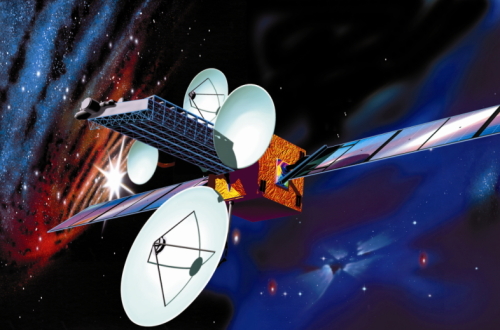The incident comes less than three weeks after the North threatened to reduce the South Korean government to ashes in minutes in retaliation for perceived insults during its commemoration of the centenary of the birth of founding father, Kim Il-sung. The autocratic regime has also recently sent faxes to 13 civic and religious groups in the South, reiterating its warning.
President Lee Myung-bak and other Seoul officials had said the money spent on the botched rocket launch and other anniversary events could have been used to assuage the dire food shortages.
“The North has been piling data and training itself through these jamming attacks,” said Yang Uk, a senior researcher at Korea Defense and Security Forum in Seoul.
“These signals are apparently not simply to provoke the South but to systemize its own techniques for a bigger strike one day, knowing Korea is a society that depends on telecommunication and computers.”
A total of 553 aircraft on route to and from Incheon and Gimpo, South Korea’s two main gateways, reported a failure with their GPS signals between April 28 and May 6. The Transport Ministry said it has traced the jamming signals to the direction of the border city of Kaesong.
More than 120 ships, boats and passenger liners off the West Sea, as well as two fishing fleets on the eastern shore, also saw their signals jammed, Coast Guard officials and local authorities said.
No accident has been reported. All the flights operated normally by using substitute course-plotting devices such as very-high-frequency omni-directional radio range or inertial navigation systems.
The jamming apparently stopped as of 5:57 p.m. Sunday but an additional Korean Air jet experienced similar problems at around 10:15 a.m. Monday, said Yeo Hyung-koo, the ministry’s director general of aviation policy.
“If jamming signals are detected, we can alert pilots,” Yeo told reporters on Monday.
“The government is comprehensively trying to come up with countermeasures.”
The jamming was the latest in a series of GPS disruptions over the past few years that portend a potential cyber war and subsequent interference with communications and automation facilities across South Korea, one of the world’s most wired countries.
Seoul has also pegged its nuclear-armed neighbor as the culprit behind similar jamming in 2010 and 2011, as well as last year’s cyber attacks on a spate of financial institutions. Pyongyang denied the accusations.
The latest interferences, however, were more large scale and advanced than before, said Lee Sang-wook, chief of the state-run Electronics and Telecommunications Research Institute’s satellite navigation research team.
“If it takes the right approach, North Korea can send out jamming signals over a wide bandwidth, affecting the greater number of facilities without consuming much energy, say, for costs as low as 100,000 won ($88.3),” Lee told The Korea Herald.
Although GPS has become the mainstay of navigation systems worldwide, the growing danger of cyber attacks has prompted the aviation, railway and other transportation industries to invent alternatives, Lee added.
On Monday, U.S. and Chinese defense ministers agreed to cooperate on cyber security issues, harnessing their advanced cyber capabilities.
“IT-related technologies such as signal jamming and hacking have become a key element in asymmetrical warfare on the modern military battlefield,” Yang of KODEF said.
“Given the North’s frequent and increasingly powerful electronic attacks, South Korea needs a more potent organization to conduct more systemic research. We have a lot to lose.”
Yang’s remarks are in line with an analysis by Shin In-gyun, president of non-profit Korea Defence Network.
He said North Korea has been delving into electronic warfare since 1981 and now has as many as 5,000 specialists in operation, whereas the South only began devising its own tactics three to four years ago and currently deploys around 250 experts.
“A higher number of specialists do not necessarily result in greater capabilities but it inevitably plays a role,” Shin said.
“South Korea is believed to have built substantial capabilities in electronic attacks but it needs to show its resolve to respond if North Korea continues to provoke.”
Stakes are high as North Korea is widely believed to be gearing up for a third nuclear test, which will likely ignite further international criticism and sanctions. The reclusive state also tested its atomic weapons following similar failures of rocket launches in 2006 and 2009.
Seoul, Washington and other allies blasted the failed rocket launch, tagging it as a cover to test its long-range ballistic missile technology. Pyongyang claims to have tried putting a satellite into orbit for civilian use.
The United Nations Security Council committee has added three North Korean state enterprises to its blacklist in the wake of the April 13 event, freezing assets and banning overseas trade.
By Shin Hyon-hee (
heeshin@heraldcorp.com)





![[Exclusive] Hyundai Mobis eyes closer ties with BYD](http://res.heraldm.com/phpwas/restmb_idxmake.php?idx=644&simg=/content/image/2024/11/25/20241125050044_0.jpg)
![[Herald Review] 'Gangnam B-Side' combines social realism with masterful suspense, performance](http://res.heraldm.com/phpwas/restmb_idxmake.php?idx=644&simg=/content/image/2024/11/25/20241125050072_0.jpg)

